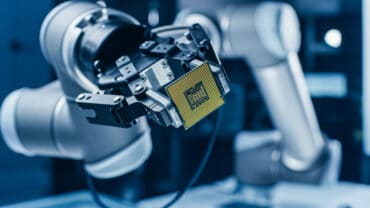
In the news this week: IBM announced Watson Works, a set of products that embed Watson AI models and applications to help companies get back to work safely.
Keeping pace with news and developments in the real-time analytics market can be a daunting task. We want to help by providing a summary of some of the items our staff came across each week. Here is a short list of some news from this week:
IBM announced Watson Works, a curated set of products that embeds Watson artificial intelligence (AI) models and applications to help companies navigate many aspects of the return-to-workplace challenge following lockdowns put in place to slow the spread of COVID-19. Specifically, Watson Works provides data-driven insights to help employers make informed decisions on workplace re-entry, facilities management, space allocation, and other COVID-related priorities. Watson Works is designed to help companies with these elements of returning to the workplace as they respond to COVID-19 related challenges:
- Manage facilities and optimize space allocation by using real-time data provided by the employer, including WiFi, cameras, Bluetooth beacons, and mobile phones. This data, collected in a way that is designed to preserve employees’ privacy, enables managers to quickly reallocate spaces, designate no-go zones, arrange for cleaning and monitor crowding, social distancing, and mask-wearing.
- Prioritize employee health by enabling employers to make evidence-based decisions about when to have employees return to the workplace and when certain offices or worksites should be closed. Facilitate the collection and analysis of real-time data from multiple sources, including local infection rates and trends, voluntarily shared employee symptoms and test results, employee and household health risks, and state and local regulations. Additionally, managers can be swiftly alerted to relevant updates.
- Communicate with employees, vendors, and other stakeholders. Through virtual agents and apps that use Watson’s Natural Language Processing capabilities, employees can get answers from employers to COVID-19 and HR questions, self-report symptoms, or learn whether they should report to work that day. Employees can also find out what time the employer thinks is the best time to arrive at the office, to avoid overcrowding.
- Maximize the effectiveness of contact tracing by assisting organizations with support for care agents and contact tracers. When employees voluntarily notify their employers of a positive test result and give consent, contact tracers can conduct interviews and use information from multiple sources to help identify individuals who should be notified of potential exposure, document all case-related information in a secured, privacy-preserving system, and trigger employer designed case management workflows to support employees while they recover.
Tata Consultancy Services and IBM have expanded their global alliance to help businesses accelerate their digital and cognitive enterprise transformations to IBM public cloud using IBM Cloud Paks. As part of this relationship, TCS will establish an IBM Enterprise Cloud Architecture Unit, which will include technical professionals from both companies. TCS and IBM plan to co-develop solutions designed to help clients migrate workloads across applications, analytics, data estate, and platforms using IBM Cloud Paks, enterprise-ready containerized software solutions running on Red Hat OpenShift.
DataON, a provider of hybrid cloud solutions for Microsoft Azure Stack HCI with cloud-based Azure Services, has collaborated with Intel to offer verified Intel Select Solutions for AI Inferencing, powered by 2nd Gen Intel Xeon Scalable processors. Intel Select Solutions for AI Inferencing provide businesses with a jumpstart to deploying efficient AI inferencing algorithms on solutions built on validated Intel architecture to innovate and go to market faster. To speed AI inferencing and time to market for applications built on AI, Intel Select Solutions for AI Inferencing combine several Intel and third-party software and hardware technologies.
FortressIQ and Blue Prism announced a strategic partnership that brings together business process discovery, intelligent automation, and operational analytics. FortressIQ helps businesses drill down to the sub-task details of their processes across the enterprise so that they can then determine where and how Blue Prism’s Digital Workers will be most effective. Proper process discovery limits rework so that customers can streamline their Blue Prism deployments up to 90 percent faster than traditional methods.
Amazon Web Services, Inc. (AWS), an Amazon.com company, announced AWS Snowcone, a new small, ultra-portable, rugged, and secure edge computing and data transfer device. At under 5 lbs. and able to fit in a standard mailbox or a small backpack, AWS Snowcone is the smallest member of the AWS Snow Family of devices, enabling customers to collect data, process it locally, and move it to AWS either offline (by shipping the device to AWS) or online (by using AWS DataSync to send the data to AWS over the network). AWS Snowcone is built to withstand harsh conditions and is designed for a variety of use cases in environments outside of the traditional data center that lack consistent network connectivity or require portability, including healthcare, industrial IoT, drones, tactical edge computing, content distribution, data migration, video content creation, and transportation.
SAP SE announced new capabilities, enhancements, and further unification of the Business Technology Platform portfolio to help companies transform data into business value. SAP’s Business Technology Platform enables developers and business users to access integrated, end-to-end services and tools to realize value along with three critical areas of IT: data excellence, process integration, and extensions.
Shell and IBM iX is the global business design arm of IBM Services, launched Oren, a global B2B Digital mining services marketplace platform, co-developed by the companies aimed at helping mining companies find solutions related to safety, sustainability, mine planning, and operational efficiency. By hosting new technology and digital solutions in one place, Oren aims to accelerate the digitization of the mining industry, speed up the transformation of mining workflows and build in more operational resiliency in a rapidly changing world.
DataRobot announced enhancements to its enterprise AI platform designed to take enterprise AI to new heights. These enhancements include a Use Case Value Tracker, Location AI, Champion/Challenger Models and Humble AI for MLOps, and Anomaly Detection for Time Series. The latest innovations, including the Use Case Value Tracker, Location AI, and Humble AI, are designed to help businesses accelerate a user’s journey from data to value and will help more enterprises harness the power of AI.
GE Healthcare is working with the University of Oxford-led National Consortium of Intelligent Medical Imaging (NCIMI) in the UK to develop and test algorithms to aid in the diagnosis and management of COVID-19 pneumonia. The program will focus on developing, enhancing and testing potential algorithms to help diagnose COVID-19 pneumonia, predict which patients will develop severe respiratory distress – a key cause of mortality in patients who develop COVID-19 pneumonia – and which patients might develop longer-term lung function problems, even when they recover from respiratory distress.
Helm.ai, a developer of next-generation AI software, announced a breakthrough in unsupervised learning technology. This new methodology, called Deep Teaching, enables Helm.ai to train neural networks without human annotation or simulation for the purpose of advancing AI systems. Deep Teaching offers far-reaching implications for the future of computer vision and autonomous driving, as well as industries including aviation, robotics, manufacturing, and retail.
UiPath announced it added conversational AI capabilities to its end-to-end hyperautomation platform. With out-of-the-box conversational capabilities for UiPath Robots, industry-tailored chatbots, and new automation capabilities that engage employees more productively, UiPath makes it easier for enterprises to offer always-on, scalable, best-in-class global support experiences that give customers access to support whenever they need it on the most popular global messaging channels.
Ekata announced the release of the latest innovation to its global identity verification dataset, Network Score. Network Score is a machine learning prediction that enables businesses to better identify good and bad customers based on a series of insights. The new dataset flags potentially risky digital transactions and fraudulent customers by analyzing the activity patterns of the identity information being used. Network Score leverages the power of the Ekata Identity Network, a proprietary global dataset of billions of customer transactions, to reduce the number of false declines and increase the precision of fraud detection. The Identity Network works in conjunction with the Identity Graph, Ekata’s database of globally sourced and licensed data, vetted through rigorous acceptance criteria in compliance with global privacy and security standards.
If your company has real-time analytics news, send your announcements to [email protected].
In case you missed it, here are our most recent previous weekly real-time analytics news roundups:




























